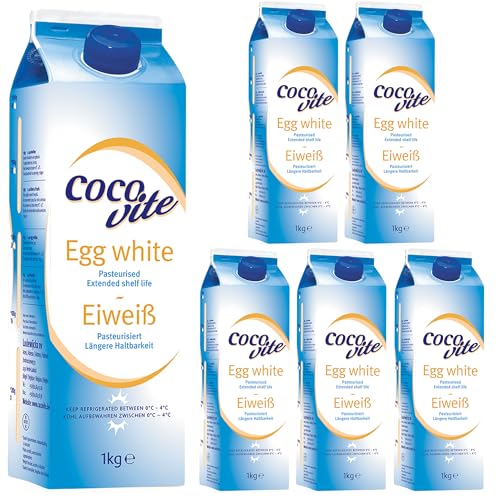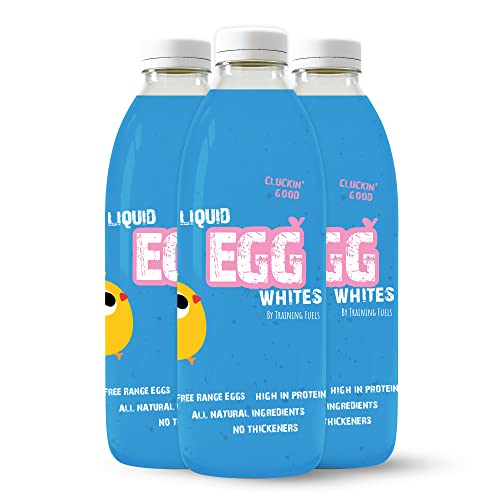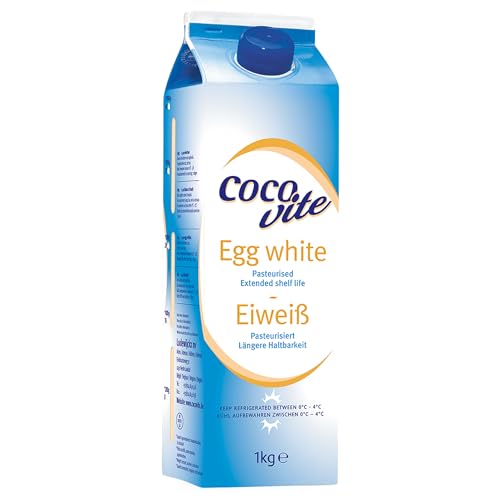Understanding Egg Whites: Nutritional Benefits and Cooking Uses
The Nutritional Powerhouse of Egg Whites
Egg whites are often seen as a dieting staple due to their high protein content and low calorie count. One large egg white contains about 3.6 grams of protein, virtually no fat, and just 17 calories. This makes them an excellent choice for anyone looking to increase their protein intake without adding excess calories to their meals. Additionally, egg whites are rich in essential amino acids, making them a great option for muscle repair and growth.
Versatile Cooking Ingredient
In the kitchen, egg whites provide a unique texture and structure to a range of dishes. They are commonly used in recipes for meringues, soufflés, and mousses, where their ability to whip up into a stable foam is key. They can also be incorporated into pancakes or omelettes for a protein boost, or even used as a binder in baked goods. Their versatility allows us to experiment in the kitchen while embracing healthier cooking methods.
Choosing the Right Egg Whites: Fresh vs. Carton vs. Powder
Understanding Fresh Egg Whites
Using fresh egg whites is straightforward; simply crack the egg and separate the white from the yolk. This method can be the freshest option, but it requires careful handling—anything other than a perfectly separated white can lead to unwanted results in recipes like meringues. Fresh egg whites also require proper storage if not used immediately, so keep that in mind.
Benefits of Carton Egg Whites
Carton egg whites are a convenient alternative, typically pasteurised for safety, making them an excellent choice for recipes that call for raw or lightly cooked egg whites. They can be stored in the refrigerator and have a longer shelf life than fresh eggs. This option saves time on preparation without sacrificing quality, perfect for those of us who want to simplify our cooking.
Powdered Egg Whites: A Shelf-Stable Option
For those who are short on fridge space or looking for a long-lasting option, powdered egg whites might be the ideal choice. Just add water to rehydrate them, and they can be used just like fresh egg whites. They are especially useful for baking, giving us flexibility with our pantry staples. However, it’s essential to ensure we use a good brand to guarantee their quality.
Incorporating Egg Whites into Your Diet: Simple Recipes and Tips
Easy Recipes to Try
Incorporating egg whites into our meals can be a breeze with some simple recipes. For breakfast, consider making egg white omelettes filled with our favourite vegetables and a sprinkle of cheese for added flavour. As an afternoon snack, whip up a light and airy egg white and spinach frittata. For dessert, we can create a classic meringue or add some texture to our cakes with fluffy egg white frosting.
Sneaky Ways to Use Egg Whites
Egg whites can also be added unobtrusively into smoothies for a protein boost or used in sauces like hollandaise for a lighter version. This way, we enjoy the benefits of egg whites without compromising on taste. Experimenting is key; we can start with small amounts and adjust as we find our preferred recipes.
Storing and Handling Egg Whites: Best Practices for Maximum Freshness
Storage Tips for Fresh Egg Whites
If we find ourselves with leftover fresh egg whites, we should store them in a clean, airtight container in the refrigerator. Fresh egg whites can last about two to four days under optimal conditions. For those who want to keep them longer, freezing them in ice cube trays is an excellent idea—just transfer the frozen cubes to a resealable bag for later use.
Handling Powdered and Carton Egg Whites
For powdered egg whites, it’s best to keep the container in a cool, dry place to maintain freshness. Once opened, we should note the expiry date and use them within the recommended timeframe. Carton egg whites are typically more forgiving with storage, but they should also be kept refrigerated and consumed within the guidelines on the packaging to ensure we are enjoying their full benefits.
Exploring Egg White Alternatives: What Works for Your Needs
Understanding Alternative Options
For those who are allergic to eggs or prefer not to use them, various alternatives can stand in for egg whites in recipes. Aquafaba, the liquid from canned chickpeas, is a popular substitute that can whip up to a frothy consistency similar to egg whites, perfect for vegan baking. Tofu can also be used for a protein substitute in scrambles or smoothies, making it a versatile option.
Choosing the Best Alternative
When selecting an alternative, consider the intended use—some options work best in baking while others shine in savoury dishes. By experimenting with different substitutes, we can find what suits our cooking style and dietary needs, ensuring our meals remain delicious and satisfying.

























